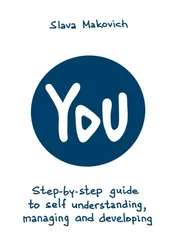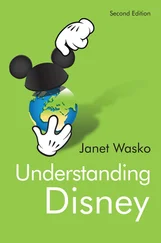For this reason I do not see how the United States of America can absorb us culturally. The USA does not have this model of welfare, regulations, laws and values; it has different ones. As I have been writing this book, tens of thousands of surprised ordinary British people have been listening to what is being said in the USA about the British National Health Service. They know that what is said is wrong, inaccurate, crazy; suddenly they are all sending indignant emails to people in America, defending their own institutions. There is no advantage in this indignation for us in Britain; it is simply a popular response to 'foreigners' (suddenly, the Americans, not the French!) who do not understand what they are talking about.
The other point is about short-term and long-term immigration into our labour market, specifically from Poles. I have written about this phenomenon elsewhere in the book. We have been quite good at absorbing Poles. Many of them are hardworking and efficient, and hence welcomed by those who needed their services. Soon Polish food appeared in our shops, Polish children in our schools, and the Catholic churches filled with devout Poles. On the one hand, the influx of Poles strengthened our connections with eastern parts of Europe. On the other hand, they made us think again about what it means to be British. (The Poles are very prejudiced; they are actually racists!') muttered English people who were taken aback by the Polish reaction to all these black and brown and Oriental British people in our society. The point is that we have become used to being an ethnically mixed society. It is normal. So we had forgotten that thirty years ago we would have responded just like the Poles. Being British (knowing our world, talking our language, making our jokes) turned out to be a stronger bond than 'being white'.
The Middle East and Islam
In a book which hopes to be relevant for several years to come, I hesitate to say much about the situation in Iraq, Syria, Iran, Israel, Palestine - or indeed in Afghanistan, although all these countries are in our news at the moment. The notion that millions in the world would suffer various kinds of armed conflict because of the challenge of an ancient and well-established religion would have been incredible twenty years ago. Nor could the British have expected to have a place in this conflict. Historically we fought (and lost) in Afghanistan in the nineteenth and early twentieth centuries. Historically we had an important part in the creation of Iraq as a state. Historically we had a confusing and confused role in the setting-up of Israel. All of these involvements were decades ago and seem to produce little response in the British now. The Middle East is far away and not much understood. We have few relationships with the Arab countries of a cultural or social kind so the fact that we have been heavily involved politically in the last decade has been bewildering to most of our population. Although wars tend to bring a country's population together in support of their military action, that kind of solidarity has been missing in our Middle Eastern occupations and wars. President Bush's declaration of a War On Terror aroused huge scepticism from the beginning.
By contrast, Pakistan, which is neither Arab nor part of the Middle East, is a country with a long relationship with Britain, and this is the country (along with Bangladesh) from which most of our Muslims originate. Our information about Pakistan is often vague, but it includes not just government reports but personal impressions, descriptions and stories from thousands of British Pakistanis who keep up their links with their 'old country'. The terrorist attacks in Britain in 2005 made life difficult for all Muslims, particularly since the terrorists seem to have learnt their ideas and practices on visits to Pakistan. However, four years is a long time, and worship at mosques all over England continues, Muslims are members of Parliament, local government and all the professions, Muslim comedy is popular on the BBC, and Muslim women wearing headscarfs are a part of the local British scene. The anti-Muslim racists in our country are a small minority of the population. Meanwhile British citizens who are Muslims, British Indians who are Sikhs and Hindus, distant memories of imperial ties, 'Indian' food, Bollywood films and sport all add to a basically tolerant communal culture. Not everywhere; not always; but much more often than the spasmodic moments of bitter prejudice on both sides.
The Internet, Mobile phones and Globalisation
The existence of the internet has changed our views of the world. Information about any country, even if it is wildly inaccurate, can been found by pressing a few keys. Videos of events from the smallest disturbance to major acts of war are filmed on mobile phones and posted on the internet, as are news items and endless opinions about them.
People all over the world can be in contact with each other via email, social networking sites, satellite video, and other newer technologies. Many global campaigns on behalf of electoral candidates, victims of torture, religious sects, sufferers from poverty, AIDS victims, economic crusades, anti-corruption and saving the planet from climate change have been mounted through the internet and enlisted hundreds of thousands, sometimes millions of supporters. It is easy to press a key to 'support' a campaign, even when you do not know the basic facts or the people directly involved. Nonetheless, the practice of organizing such campaigns and the possibility of taking part even as you sit in your chair at your computer must have some significance. We begin to think in global terms.
How has all this technology affected the British. Because the internet mostly operates in a kind of 'technical English', we have not had to learn another language. So we can be 'international' while remaining resolutely monolingual (which is a disadvantage even if we think it is an advantage). At the same time the internet has encouraged other people to learn this 'technical English' and to explore a wider world in which they become confident in communicating with people from different nations. So we will continue to enjoy the advantages of communicating with people from other countries and cultures.
A Note on Russia
Apart from those of us who have visited your country, the British spend very little time thinking about Russia. Some people with vivid imaginations dream about the immensity of your land. Some are devoted to your literature and read Tolstoy or Dostoevsky once a year. Some believe that Russians are incapable of living within a democratic system. Some are appalled and fascinated at tales of your alcoholic consumption. Tourists who have visited Russia speak of your kindness and hospitality. In other words there are plenty of stories about Russia as there always have been, but no clear image of your place in the world scene. So the British as a whole have no particular views. They are certainly not 'anti-Russian'.
In my experience, Russians find this incomprehensible. In universities throughout Russia when I face a group of students and suggest that they ask me questions about Britain, there is a pause, sometimes a long silence. Then someone asks, 'What do the British think about Russians?' My first answer is that if a Russian professor were in front of a class of British students waiting for similar questions, the British students would not ask, 'What do Russians think about British people?' They would not care what Russians think about the British. They would ask questions about Russia since that is the point of such meetings. The depth of Russian nervousness about your image abroad is the unusual aspect of this exchange.
All countries tend to explain the policies of other countries from their own point of view, a habit which leads to many misunderstandings that diplomats try to sort out. So your government supports and rejects policies according to what they believe is best for Russia. That is absolutely normal. But as a people you react differently from the rest of us in seeing yourselves as objects of love or hatred by the rest of the world. You are implicitly saying that if we do not manifestly love you, we must hate you. This is a theme that runs through much of your serious media, and which emerges in these regular questions about how the rest of the world thinks of 'Russians'. It is a misunderstanding. Even the Americans who attract most love-hate in the world do not spend so much time worrying about the possible hatred of people who have never actually given them much thought.
Читать дальше












